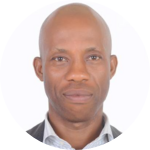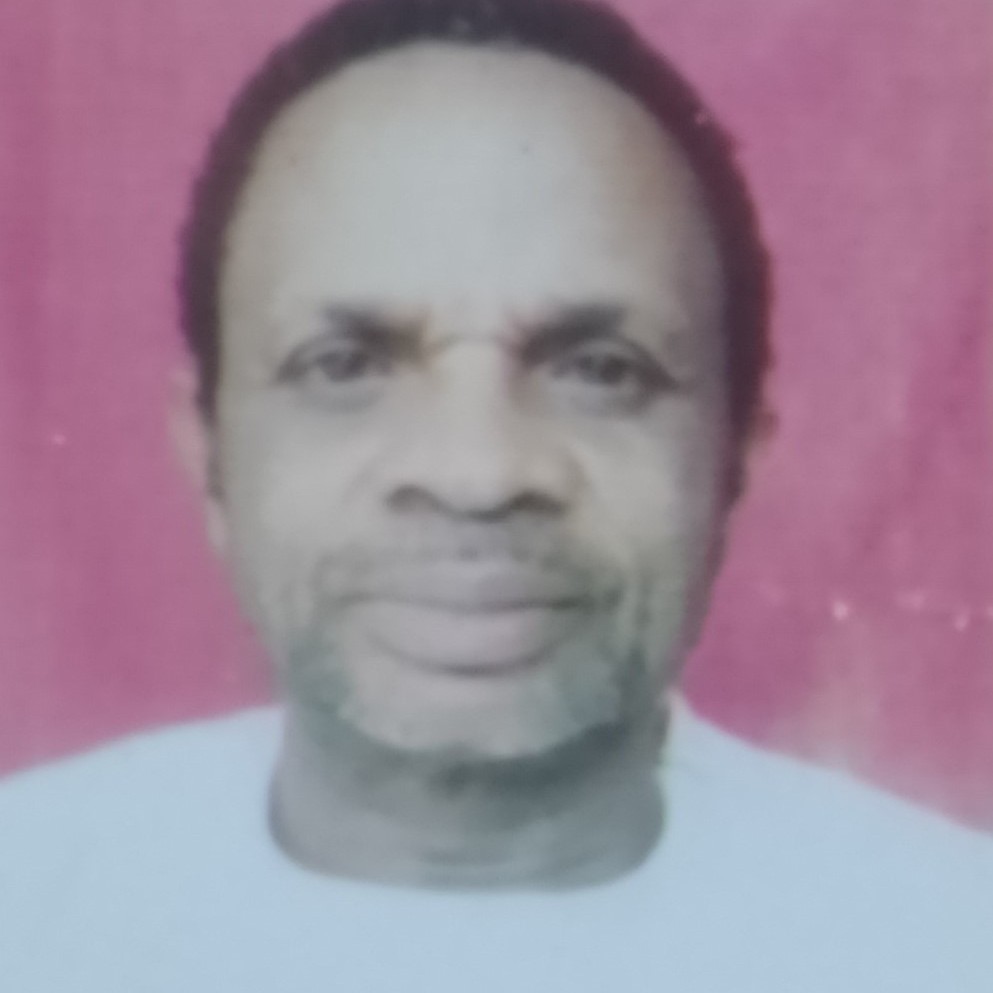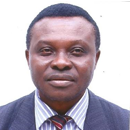About This Project
Ocean acidification (OA) exacerbated by climate change is a current environmental stressor affecting Marine Protected Areas (MPAs) in Nigeria. This project aims to monitor the challenges posed by OA as it affects sustainable development and conservation of MPAs in Nigeria. The Project will empower coastal zone and MPA managers; will build the capacity of researchers in OA monitoring in Nigeria and enhance enforcement of legislations on marine conservation practices.
Ask the Scientists
Join The DiscussionWhat is the context of this research?
The maritime industries in Nigeria consist of coastal aquaculture and a developing blue economy. Despite the critical importance of these industries to the nation's GDP and sustainable livelihood, there is lack of comprehensive data and understanding of how ocean acidification is affecting the MPAs, marine biodiversity and marine economic activities. Furthermore, the socio-economic impacts of ocean acidification on communities that depend on marine resources for their livelihoods remain under-researched, potentially leading to inadequate or misguided policy responses. This study aims to address these gaps by using GOA-ON Box Kits to monitor ocean acidification in identified MPAs, assessing its impacts on fishery production and provide critical insights for the development of effective mitigation and adaptation strategies to safeguard Nigeria’s blue economy and the MPAs. Additionally, this research seeks to establish OA and EOV baseline data for the region.
What is the significance of this project?
GOA-ON Box Kits is an international OA assessment tool that provides accurate and reliable oceanographic data needed to manage critical marine ecosystems such as MPAs. The results of the project will assist in the understanding of the Regional Impacts of Ocean Acidification, its effects on Marine Ecosystems services/ sustainable livelihoods, its Socio-Economic Implications, Climate Change Interactions, and Vulnerability of Coastal Habitats such as MPAs to OA. It will also facilitate the development MPAs and relevant Policies and Management Strategies by the Nigerian Government. Furthermore, by studying ocean acidification in the Gulf of Guinea, it will contribute to the global understanding of how climate change and human activities affect marine ecosystems and coastal communities, as well as providing crucial data for regional resilience and adaptation strategies. It will create the awareness of ocean's influence on man and man’s influence on the ocean.
What are the goals of the project?
Aim of the Project: This project aims to monitor the impacts of OA on identified MPAs and proffer practicable solutions for their sustainable management. Firstly, data will be collected and generated through the administration of semi-structured questionnaires, focus group discussions and in-depth interviews of community leaders, legislators and principal officers of government parastatals. Secondly, Measurement of Carbonate system parameters and EOVs will involve monthly monitoring and collection of water samples from 24 designated locations stretching from the Cross-river estuary to the Ibeno river estuary, Nigeria. Measurable parameters include pH, CO3, DIC, pCO2 and HCO3 in seawater. Standard protocols outlined by the GOA-ON methodology, will be followed to ensure data accuracy. Others include DO, SSS, SST, NO3, PO4, turbidity and chlorophyll concentrations. The Project will also build capacity and national network among stakeholders in Nigeria.
Budget
The project budget will be Nine thousand, eight hundred and ten US Dollars ($9,810) only. The GOA-ON Box Kit contains tools and kits for collecting high quality OA data. The high-performance hardware allows the processing of large volume of oceanographic data and performing of complex analysis. There will be a training workshop for all stakeholders from government, legislators, students, researchers, coastal communities etc) on the use of the GOA-ON Box kit. This will equip them with the skills and techniques for monitoring and identifying MPAs and handle oceanographic tools and data interpretation.
Endorsed by
 Project Timeline
Project Timeline
The project duration will be for 13 months. Starting from February 2025 and ending February 2026. It will involve a reconnaissance trip to the study sites, mapped by appropriate geographical coordinates. Monitoring of OA and EOVs shall be carried out monthly at designated stations for dry and wet seasons. One capacity building workshop shall be organized for the training of stake holders. Interim and final reports shall be submitted in October 2025 and February 2026 respectively.
Feb 01, 2025
Project starts with a reconnaissance trip to the project site.
Mar 03, 2025
Dry Season trip for monitoring of OA* parameters and EOVs
Apr 01, 2025
- Capacity Building Workshop for all stakeholders - Wet Season trip for monitoring of OA parameters/EOVs
May 04, 2025
- Wet Season trips for monitoring of OA parameters/EOVs (May - October 2025)- Submission of Interim Report
Nov 03, 2025
- Dry Season trips for monitoring of OA parameters and EOVs (November - January 2026)
Meet the Team
Team Bio
Our team, Marine Atmosphere and Coastal Research Network Group (MACORN_UNICAL), consist of researchers and students from different oceanographic backgrounds (chemistry, biology, fisheries, geology and physics). Interests include climate change and ocean acidification, fisheries and coastal communities. ocean literacy, marine education, MPAs, MSP, monitoring and management of polluted environments.
Francis Emile Asuquo
Prof. Asuquo is a full Professor of Chemical Oceanography with specialization in Marine Biogeochemistry, Toxicology and Pollution. I obtained my Bachelor of Science (Hons) degree in Chemistry from the University of Calabar in 1980, an MSc degree from the University of Ibadan, Nigeria, in 1986, and a PhD in Marine Environmental Chemistry from the University of Calabar, Nigeria, 1994. I received my professional training on Marine Pollution monitoring of trace organics/ impacts on sea and fisheries and Integrated Coastal Zone Management at the Institüt für Meeresforchung, Bremerhaven, Germany (1985) and International Centre for Marine Sciences and Technologies/CNR, Venice, Italy (1993) respectively. I also participated in a Regional Training Course on Marine Nutrient Chemistry and Monitoring in Tunis, Tunisia sponsored by IAEA in 2010. In 2017, attended ocean gliders training for the monitoring of essential ocean variables (EOVs) and ocean contaminants at PLOCAN, Spain. I am passionate about ocean acidification, ocean literacy and management of MPAs. Recently, I participated in the Ocean Acidification training course organized by Ocean Foundation, USA for West African marine scientists in Ghana (2024).
vbojroxklgerxsjhvnzr
Prof. Ekpo Eyo Antai, Dean, faculty of Oceanography, University of Calabar, Nigeria
We are in support of solution driven marine researches that will key into policy decisions to tackle our phenomenal environmental challenges. I am therefore in support of this project on MPAs and the probable impacts of ocean acidification on them. The university is proud to be associated with this project.
vfamnehhlnblymrtnzuj
Adamu Gadu, Nigerian Atomic Energy Agency
This project is highly remarkable as it focused on the use of modern technology and analytical method such as the GOA-ON Box Kit developed by UNESCO to assess the effect of Ocean Acidification on MPAs. The project not only propagates the use of technological innovation but also emphasized on the development of stakeholders’ capacity for the continuous community engagement and management of MPAs. I strongly support the project.
udnwrobwkhbtrunjlgld
Prof. Peter C. Okafor, Deputy Vice Chancellor, Research, Collaborations and Linkages, University of Calabar, Nigeria
This project is very crucial at this point in time as it will provide the much needed data to understand the impacts of Ocean Acidification on the Marine Ecosystem of Nigeria. I am totally committed and in support of this effort and will ensure its successful completion.
Lab Notes
Nothing posted yet.
Additional Information
Additional data shall be obtained for Fish stock assessments, fisheries statistics, socioeconomic studies of OA on MPAs. Both quantitative and qualitative methods of data analysis will be used (SPSS, ANOVA) to analyze environmental and socio-economic data; Ecological and economic models to simulate the impacts of different levels of OA on marine ecosystems and Thematic Analysis to identify common themes, challenges, and adaptive strategies related to ocean acidification. A SWOT analysis will be conducted to assess the readiness of Nigeria’s blue economy sectors to cope with the impacts of ocean acidification and identify strategic interventions.
Project Backers
- 0Backers
- 0%Funded
- $0Total Donations
- $0Average Donation





